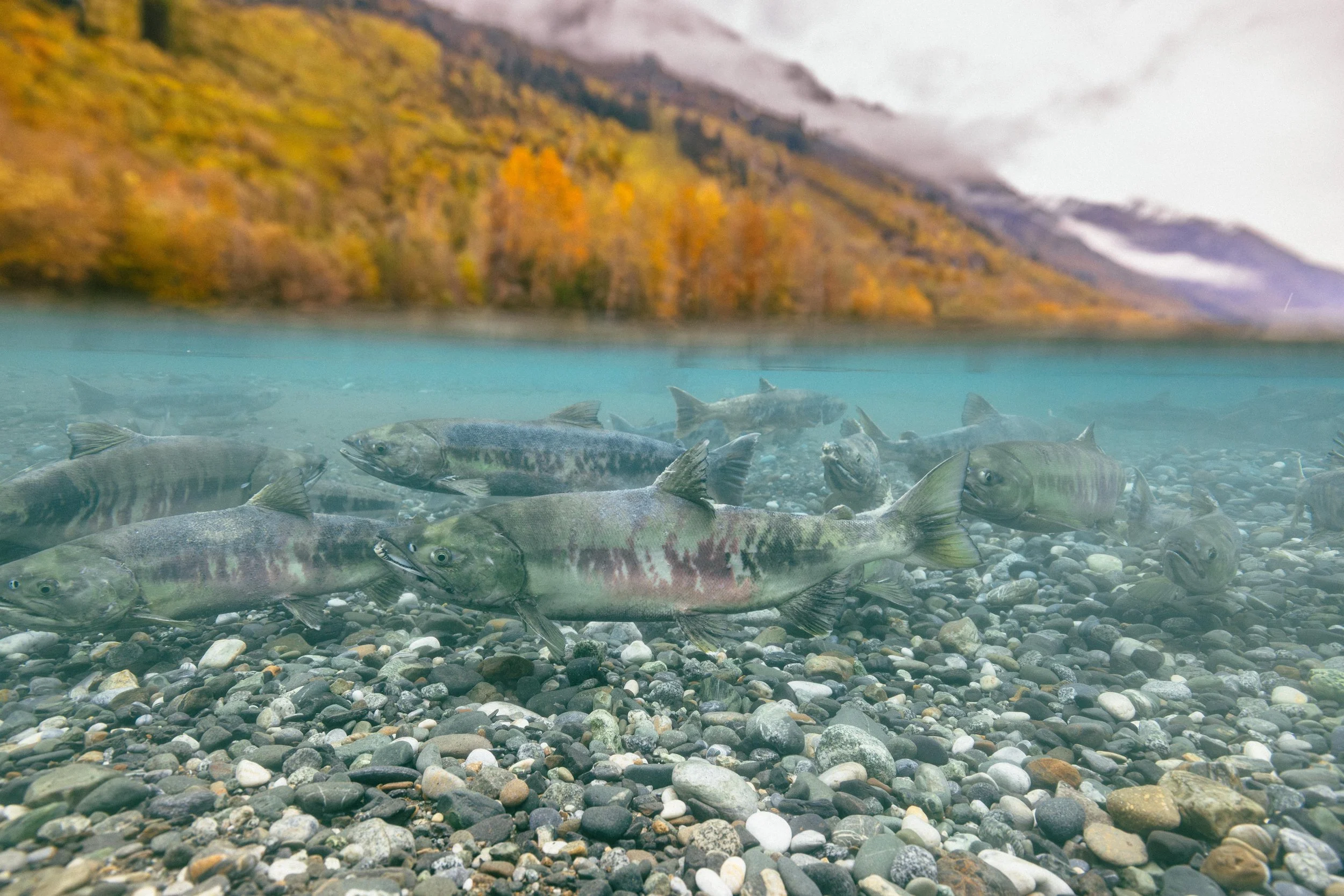Chilkat Indian Village (Klukwan) and Chilkat Forever put new owners on notice: Development of Palmer mine project in Chilkat Valley will face "sustained and unyielding opposition"
Photo by Colin Arisman
KLUKWAN, AK—The Chilkat Indian Village (Klukwan) and Chilkat Forever are putting the new owners of the Palmer mine project, Vizsla Copper, on notice that they are not welcome to explore, develop, or operate a hardrock, acid-generating mine project in the Chilkat Valley. Hardrock mining poses significant threats to the the Jilḵáat Aani Ḵa Héeni (Chilkat Valley Watershed), the way of life the Chilkat Valley provides to all who live here, and the biodiversity the valley supports, including bald eagles, wild salmon, moose, and bears.
“Whether it’s Vizsla Copper Corporation, American Pacific Mining Corporation, or another operator that owns the Palmer mining project, this industrial hardrock mining development lacks the consent of the Chilkat Indian Village - Klukwan and of many in the broader community,” said Kimberley Strong, President of Chilkat Indian Village. “It is not only Klukwan that stands to be harmed. Continued hardrock exploration and development at the Palmer mine site poses direct and unacceptable risks to our food security, our way of life in the Chilkat Valley, and the commercial fishing and visitor industries, which form the backbone of our local economy. Everyone who lives, hunts, fishes, and recreates in this watershed has something to lose. Any entity considering investment in this project should understand that it will face sustained and unyielding opposition from the stewards of Jilkáat Héeni.”
Vizsla Copper and American Pacific announced on Nov. 13 that they had entered into a share purchase agreement in which Vizsla will acquire the Palmer mine project for $15 million. Based on the details in that announcement, it appears that under the terms of the agreement Vizsla will also pay American Pacific an additional $5 million only if and when an updated mineral resource estimate shows 22 million tonnes or more of mineralized material, and an additional $10 million only if and when commercial production has begun at the proposed mine. The payment will be made as either cash, shares of Vizsla, or a combination. Vizsla is still looking for $25 million in financing.
“The Jilḵáat Kwáan’s mission is still the same. Whatever the situation or circumstances are, we will always stand for and with our way of life—there is no other option. We’ve been living this way since time immemorial and we’re always looking forward to the seventh generation to pass it on,” said Jones Hotch Jr., Vice President of the Chilkat Indian Village. “We work so hard to ensure that our grandchildren’s’ generation will not be the last to put up salmon from Jilḵáat River and harvest our other traditional foods.”
In 2022, the Chilkat Indian Village (Klukwan) issued Ordinance 2022-01, An Ordinance to Protect the Chilkat River and Tributaries in the Chilkat Valley, Alaska. Community support for Klukwan and opposition to the Palmer project has been growing. More than 800 Alaskans, including nearly 500 of approximately 2,500 total Chilkat Valley residents, have signed on opposing the further development of hardrock acid-generating mines like the Palmer Project, in the Chilkat Valley. So have both the American Bald Eagle Foundation and the National Bald Eagle Center.
“Our efforts are aimed at protecting what we already have here, not opposing economic growth for the greater Chilkat Valley community. No amount of money can compensate for the kind of destruction and pollution we’ve witnessed from mines across British Columbia and the Yukon,” said David Strong Jr., Chilkat Indian Village Tribal Council Member. “Life in this valley is expensive and challenging at times, but if we work together as a unified community, we can find better, safer solutions than a hardrock mine that threatens one of the major arteries of our existence. We recognize we are not the only people who depend on this land and this river. Gunalchéesh to those who are standing up to protect our way of life.”
As home to the largest migration of bald eagles in the world, five species of wild Pacific salmon, 39 species of mammals, and over 260 species of migratory birds, the Jilḵáat Aani Ḵa Héeni ecosystem is one of the most biodiverse in all of Alaska. It is far too valuable to jeopardize with high-risk large-scale hardrock mining.


